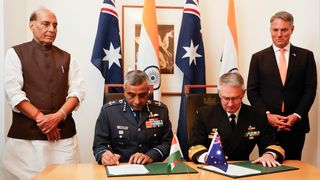The AUKUS countries are on the verge of an historic moment. Over the past twelve months, lawmakers and officials in Australia, the United Kingdom, and the United States have made notable progress in harmonising their respective defence trade control regimes in the service of accelerating AUKUS technology cooperation. These reforms, once implemented, will mark a significant step towards the creation of a ‘defence free-trade zone’ between the three partners. At the same time, there is disagreement across the Australian and US defence communities about the extent to which these reforms will enable AUKUS projects across the board, or what more might be required to ensure that they deliver their intended effects. Notwithstanding important work to date, maximising the benefits of AUKUS defence trade harmonisation will require the three countries to address a range of legal, political, and technical challenges, both new and old, at the national and trilateral level.
How did export control debates within Australia and the United States unfold over the last 18 months, and what were the consequences? What sorts of revisions might be required in order to ensure that these reforms truly enable AUKUS projects, especially those under Pillar II? Is this the first step in a wider project of wider AUKUS regulatory reform?
In a new report, AUKUS enablers? Assessing defence export control reforms in Australia and the United States, non-resident fellow at the American Enterprise Institute, Dr William Greenwalt and USSC Research Fellow in the Foreign Policy and Defence program Tom Corben assess progress towards the creation of an AUKUS “defence free trade zone,” and the challenges – old and new – posed to its full realisation. This report is the successor to the authors’ highly influential May 2023 report, Breaking the Barriers: reforming US export controls to realise the potential of AUKUS. For this webinar event, the authors spoke about defence export control reforms in Australia and the United States, and what these might mean for the future of AUKUS.







